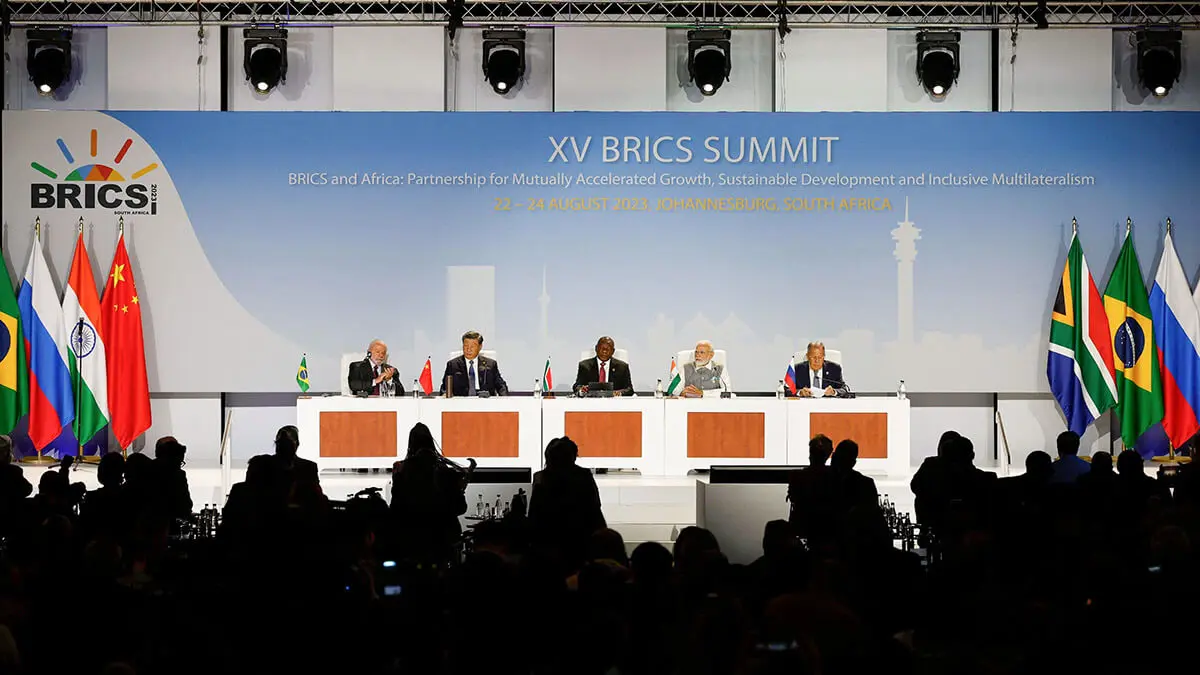The interest of the BRICS

Pure economic interest is not enough to build a community that allows member countries to achieve development and prosperity that are very difficult to achieve on their own. What is happening with the supposed heyday of the so-called BRICS, the first letter of the name of the five big countries that make up the BRICS: Brazil, Russia, India, China and South Africa, is that some are seeking a head-on confrontation with the United States and its position of economic and commercial dominance in the international arena, rather than measures that would really allow better development for their economies.
The current polarisation of the world by the struggle between China and the United States for global economic and technological hegemony and Russia's invasion of Ukraine creates complicated situations for those who seek to maintain good relations with both sides. We can admit that economic and commercial benefits can make a surprising contribution to ironing out ideological and political differences, but in the medium and long term, common and shared principles and values are needed to consolidate a relationship that affects millions of human beings.
It is clear to no one that one of the main objectives of the BRICS is to develop their own mechanisms and tools to counter the domination exercised by the United States since the end of the Second World War. Control of financial institutions, regulatory bodies, the routes and rules of world trade and the dollar as a currency of exchange and reference have placed the world's largest superpower in a clearly advantageous position, but the latest financial crises provoked by various causes, some related to the enormous expenditure on the wars in Afghanistan and Iraq, have seriously eroded its liquidity, its efficiency, its operability and, in short, its role as a world gendarme.
A decline that has dragged Europe, with its own added problems, and which has allowed initiatives within the BRICS, such as that of trying to do away with the dollar as a currency of payment in a sector as important as oil. The experts consider that the day is still a long way off when we will pay for a barrel of crude oil in Yuans, but they observe with growing concern the rise of a China without relevant political fissures in the monolithic power of the Communist Party, although with notable economic challenges in sectors such as real estate and in the slower growth of its economy.
On the other side, the authoritarian populism of characters like Donald Trump creates a political and institutional instability that does nothing to support the US position in another conflict like the one initiated against Putin's Russia in Ukraine. We suffer from a very dangerous uncertainty.



